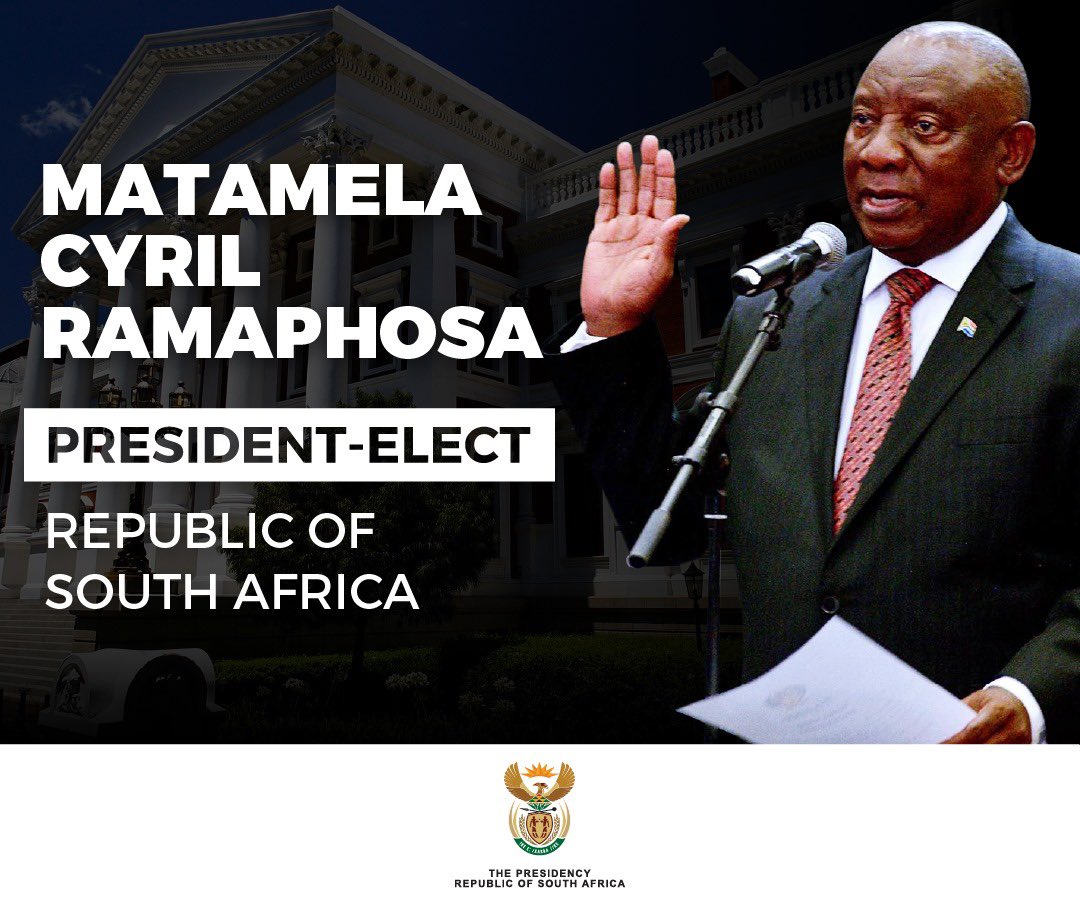In a decisive victory, Cyril Ramaphosa has been elected President of South Africa’s seventh administration, solidifying his position as the country’s leader. The election outcome was a testament to Ramaphosa’s ability to build alliances, as he garnered support from various political parties, including the Democratic Alliance, Inkatha Freedom Party, National Freedom Party, Patriotic Alliance, and Freedom Front Plus.
Ramaphosa’s victory was marked by a decisive margin, with 283 votes to his credit, compared to the 44 votes secured by his closest rival, Julius Malema, the leader of the Economic Freedom Fighters (EFF). The announcement of the election result was met with jubilation from the African National Congress (ANC) benches, with song and celebration filling the air.

Once sworn in, Ramaphosa will proceed to form his cabinet, selecting ministers who will head various government departments and execute the administration’s policies. This move is expected to have a significant impact on the country’s governance and development.
READ ALSO:
South Africa Unity Deal: IFP to Join ANC Coalition for Unity Government
ANC Wins 159 Seats in South Africa’s 2024 General Elections, DA and EFF Follo
Malema, in his concession speech, expressed his disappointment and criticized the alliance between the ANC and the Democratic Alliance (DA), terming it a “marriage” aimed at undermining the changing of property relations in South Africa. He reiterated the EFF’s commitment to being an effective opposition, ensuring accountability from both the ANC and the DA.
In contrast, DA Leader John Steenhuisen expressed his party’s enthusiasm for working with the ANC, signaling a new era of cooperation. Gayton McKenzie, leader of the Patriotic Alliance, viewed the election outcome as a second chance for South Africa.
The formation of a Government of National Unity, comprising various political parties, is considered a significant development in South African politics. While some view, it as a positive step towards collaboration and stability, others, like Malema, perceive it as a threat to the country’s revolutionary ideals.
As Ramaphosa prepares to take office, expectations are high regarding his ability to address the country’s pressing issues, including economic growth, social inequality, and political stability. His leadership and the newly formed government’s performance will be closely watched by the nation and the international community.
The President-elect faces significant challenges in balancing the diverse interests of his alliance partners while delivering on his campaign promises. His success will depend on his ability to navigate these complexities and drive meaningful change in South Africa.
Cyril Ramaphosa’s inauguration is scheduled to take place within five days of his election, on June 19, 2024, at the Union Buildings in Tshwane. The ceremony will be presided over by the Chief Justice, who will administer the oath of office to the President-elect.


2 Comments
Pingback: Nigeria Sees More Deaths from Inadequate Blood Access than Infectious Diseases - Mbamali
Pingback: World Leaders Congratulate Ramaphosa on Re-Election - Mbamali